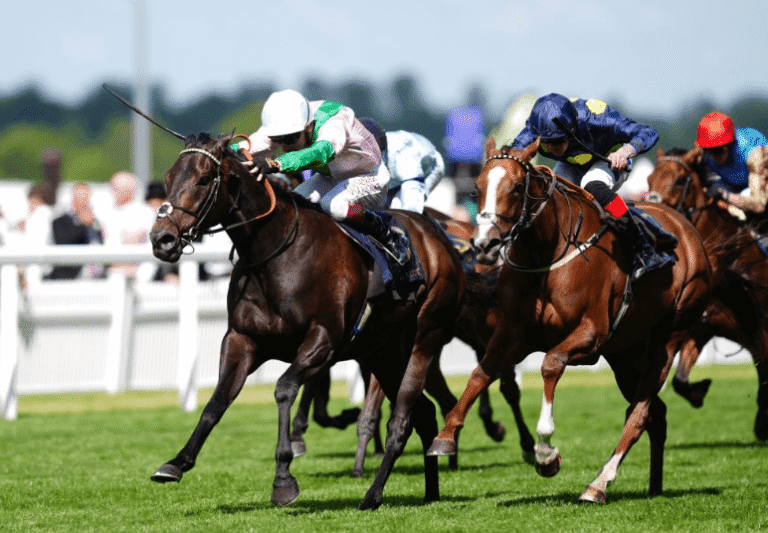Racehorses are elite athletes, and like any top-tier athlete, their performance depends heavily on nutrition. Proper feeding ensures that horses have the energy, strength, and stamina needed to compete at the highest levels while maintaining overall health and longevity. Poor nutrition can lead to fatigue, injuries, slower recovery, and even shorten a horse’s racing career.
This article explores why nutrition is crucial for racehorses and how careful dietary planning supports peak performance and welfare.
1. Energy Requirements of Racehorses
Racehorses burn enormous amounts of energy during training and competition:
- High-Calorie Needs: Intense workouts require energy from carbohydrates, fats, and proteins.
- Balanced Diet: Adequate energy must come from forage (hay, grass) and concentrated feed (grains, supplements).
- Maintaining Weight and Muscle: Proper nutrition supports lean muscle development and prevents excessive weight loss or gain.
Energy intake must be carefully matched to training intensity to maximize performance.
2. Protein: Building Strength and Recovery
Proteins are the building blocks of muscles and vital for training adaptation and repair:
- Muscle Growth: Sufficient protein supports strong muscles needed for speed and endurance.
- Recovery: Post-race or post-workout protein helps repair microscopic muscle damage.
- Quality Sources: Soybean meal, alfalfa, and specialized feeds provide essential amino acids.
Proper protein levels reduce the risk of fatigue and help maintain optimal racing condition.
See also: Famous Horse Racing Families: A Legacy of Champions
3. Vitamins and Minerals: Supporting Vital Functions
Vitamins and minerals are essential for metabolism, bone strength, and overall health:
- Calcium and Phosphorus: Crucial for strong bones and joint health.
- Electrolytes (Sodium, Potassium, Magnesium): Replace minerals lost through sweat, maintaining hydration and preventing cramps.
- Vitamins A, D, E: Support vision, immunity, and muscle function.
Balanced supplementation ensures horses stay healthy, resilient, and race-ready.
4. Hydration: The Key to Performance
Water is essential for every physiological function:
- Sweat Loss: Racehorses can lose up to 10% of their body weight in sweat during intense exercise.
- Hydration Strategies: Access to fresh water and electrolyte solutions is critical before, during, and after workouts.
- Preventing Heat Stress: Proper hydration helps regulate body temperature and prevents exhaustion.
Dehydration can quickly compromise performance and safety.
5. Feeding Strategies for Optimal Results
How and when a horse is fed can be as important as what they eat:
- Small, Frequent Meals: Prevent digestive upset and maintain steady energy levels.
- Pre-Training Nutrition: Light feeds high in digestible energy fuel workouts without causing discomfort.
- Post-Training Recovery: Meals rich in protein and carbohydrates aid muscle repair and replenish glycogen stores.
- Forage First: High-quality hay should form the basis of every feeding program for gut health.
Well-planned feeding schedules support consistent performance and recovery.
6. Special Considerations for Racehorses
Racehorses have unique dietary needs:
- Young Horses: Growing horses require more protein and minerals for bone development.
- Older Horses: May need softer feeds or supplements to maintain condition.
- Traveling Horses: Special attention is required when horses race at distant venues to prevent stress and digestive issues.
- Performance Supplements: Some trainers use vitamins, electrolytes, or joint-support supplements, always under veterinary guidance.
Individualized nutrition ensures that every horse performs safely and effectively.
7. Role of Veterinarians and Nutritionists
Veterinarians and equine nutritionists collaborate to create custom feeding programs:
- Assess body condition, workload, and health status.
- Recommend feed types, portions, and supplements.
- Monitor for signs of deficiencies or overfeeding.
Professional guidance ensures that nutrition enhances both performance and welfare.
Conclusion
Nutrition is the cornerstone of a racehorse’s success. Balanced feeding, proper hydration, and strategic supplementation ensure that horses are strong, healthy, and ready to compete at the highest levels.
Investing in good nutrition not only improves performance and recovery but also safeguards the long-term health and career longevity of racehorses. In the world of elite racing, the right diet can make the difference between a good horse and a true champion.
